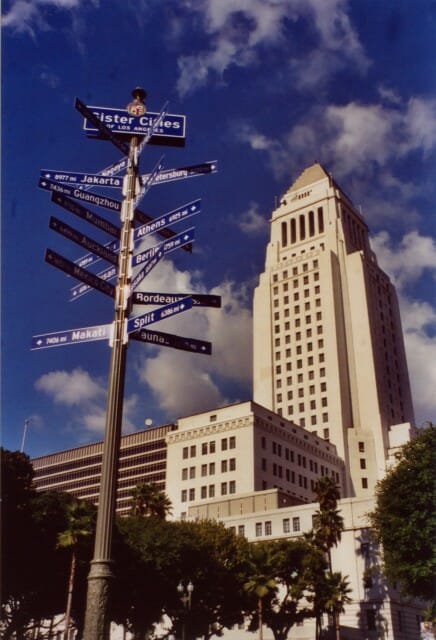 As a follow up to our recent onslaught of posts on Los Angeles City Attorney Mike Feuer’s crackdown on medical marijuana delivery services, we thought we’d compile a list of five things you probably do not know about Proposition D. And even where these five rules are known, we see a serious shortage of abiding businesses.
As a follow up to our recent onslaught of posts on Los Angeles City Attorney Mike Feuer’s crackdown on medical marijuana delivery services, we thought we’d compile a list of five things you probably do not know about Proposition D. And even where these five rules are known, we see a serious shortage of abiding businesses.
To briefly recap, Proposition D, which passed in 2013 and was implemented in 2014, was intended to reduce the number of dispensaries within Los Angeles city limits to 135 – the number of dispensaries operating before September 14, 2007. Over the last few years, the City of Los Angeles has succeeded in shutting down hundreds of illegal medical marijuana businesses that failed to meet Proposition D requirements for immunity. But the battle is a tough one, with new dispensaries popping up to replace those that have shut down, and failure to comply with the city’s confusing and complicated regulations running rampant.
Here are five regulations contained in Proposition D that many of our own clients were not aware even existed, until one of our cannabis lawyers told them:
1. To qualify for Proposition D immunity, every medical marijuana business in Los Angeles must have been operating, as evidenced by a business tax registration or tax exemption certificate from the City, prior to November 13, 2007. On top of that, businesses granted immunity must have complied with every other registration and requirement implemented by the City thereafter. As we noted above, this narrows down the number of potentially immune businesses to only 135. Always be skeptical of those looking to sell “Proposition D compliant” businesses as those businesses are few and far between.
2. Delivery services are illegal. We know we’ve belabored this point to death, but these types of businesses are still active and forming within the City and our California cannabis lawyers get calls constantly from people wanting to start just such a business. The illegality of delivery hinges on Proposition D’s characterization of an immune medical marijuana dispensary as tied to its “location.” A “location” is defined as “any parcel of land, whether vacant or occupied by a building, group of buildings, or accessory buildings, and includes the buildings, structures, yards, open spaces, lot width, and lot area.” LAMC § 45.19.6.1. This does not include vehicles, which would constitute a separate business and which cannot obtain immunity. Delivery services do not work under Proposition D. They just don’t.
3. Cannabis Consumption on site is prohibited. This is a big one, and we know it’s often disregarded. Proposition D prohibits medical marijuana businesses where marijuana and/or alcohol are consumed at the premises or in the adjoining parking area. LAMC § 45.19.6.2(H). Couple this with both state and local indoor smoking laws, and local permitting requirements, and finding somewhere in Los Angeles to legally host an event where cannabis is distributed or consumed becomes extremely difficult.
4. Every manager of a medical marijuana business must pass and publicly display the results of an annual LAPD LiveScan background check. Any felony conviction within the last ten years, including for sale or distribution of a controlled substance (this includes marijuana) will result in a failed background check. Some states (Washington, for instance) grant leniency in licensing to those convicted of offenses related to distributing marijuana. Not so in Los Angeles.
5. No permits or licenses issued by the City of Los Angeles confer vested rights on a medical marijuana business. This means that even if a business obtained authorization from the City to operate at one point, those rights do not vest and guarantee it the ability to continue operating in the future. In particular, once new legislation is put in place, current immunity could mean nothing, and even compliant businesses might have to start from square one.
We are anxiously awaiting new legislation that will change the state of affairs in Los Angeles, but have so far seen no movement in the direction of reform. In the meantime, if you want to conduct your cannabis business in Los Angeles legally, you should know the above five rules.
For more on Proposition D, check out Los Angeles’s Proposition D: Remedy or Runaround? and Los Angeles Marijuana: The Uphill Battle of Proposition D























